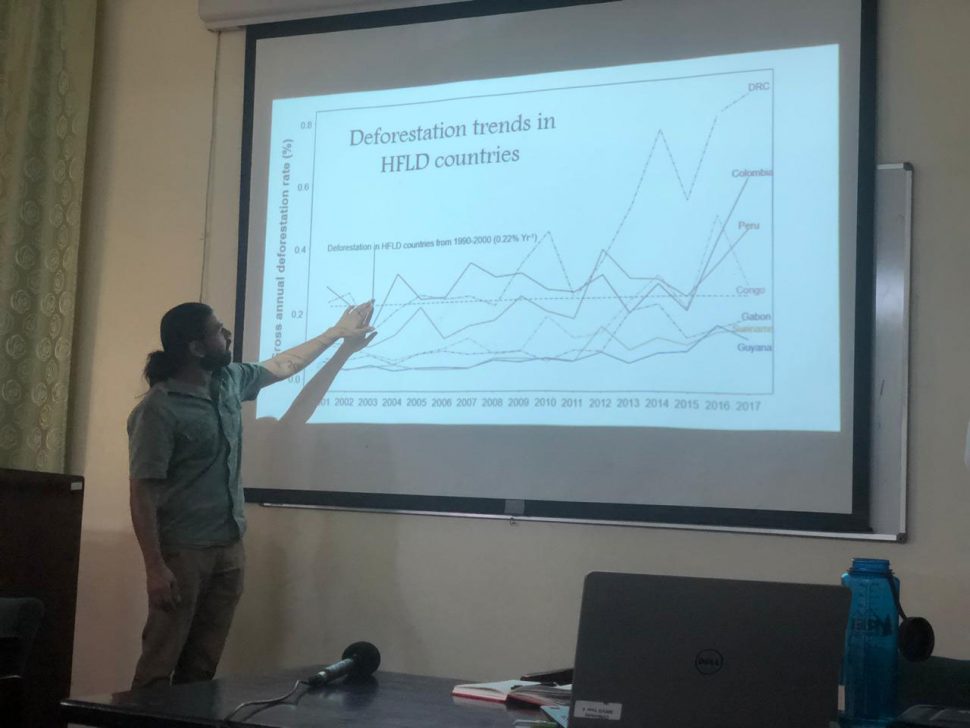During the five years that the Norway-funded REDD+ (Reducing Emissions from Deforestation and forest Degradation) project ran, Guyana recorded 35% less deforestation than it would’ve without the project, Anand Roopsind, a Guyanese PhD student from Boise State University, says.
Roopsind, who has worked with Conservation International – Guyana (CI-Guyana) as well as with the Guyana Forestry Commission (GFC), presented the findings of his PhD study yesterday afternoon at the GFC, where he said that the REDD+ project resulted in 35% less deforestation over the 2010-2015 period, which amounts to approximately 12.8 million tonnes of carbon dioxide not being emitted into the atmosphere.
Roopsind’s study explored at what logging intensities would reduced impact logging (RIL) practices maintain the timber and carbon services that Guyana was being compensated for. “Guyana is super unique because we have one of the longest experiments running in the world on reduced impact logging,” Roopsind said, while noting that the study has been ongoing for more than 20 years and has been using an experimental design.

